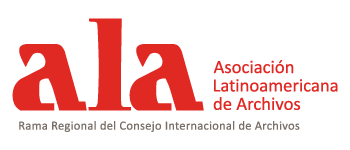Welcome message


In recent times there has been a great deal in the media about “fake news”. Usually this is information published by an established news institution which is subsequently dismissed as fiction by another party – often the subject of the news item. Of course this is not entirely new, but what is disturbing about the current trend is how quickly it has become normal political practice, and how easily people now apparently accept that information once considered reliable can be so easily discredited and dismissed. Even more disturbing is that the “fake news” phenomenon is steadily undermining the people’s trust in the traditional institutions of democracy and government.
This is just one example of the many contemporary developments affecting the way in which all of us in the Archives and Records Management profession must constantly re-evaluate our role and our place in society. The decisions we make on the selection, preservation and accessibility of records have a profound and lasting effect on society’s memory and of each individual’s understanding of his or her own place in society and connectedness with the community. As trends like “fake news” come and go, we must ensure that the reputation and public trust in Archives remains undiminished, and future generations can depend on the records we hold as authoritative and dependable evidence of past statements, decisions and deeds.
In this context, the 2017 ALA-ICA Conference, with its theme of “Archives, Citizenship and Interculturalism” is very timely and an important event for the international community. It brings together into one program the most significant professional challenges that we face, including ancestral cultures; human rights; Illicit trafficking of documentary heritage; personal data protection; digital systems and interoperability; contemporary legal issues; regional cooperation; and disaster recovery. These are complex areas that I am certain will generate a great deal of analysis, discussion and debate for all of us. I am equally certain that they will provide new insights that we can take back to the great benefit of our own institutions.
I congratulate ALA and in particular its President Doctor Mercedes de Vega for hosting this outstanding event and I encourage all of us in the ICA community to take this opportunity to participate, contribute and learn from each other to ensure that our professional community continues to serve the public in the best possible way – and in the process provide the antidote for “fake news”!
 David Fricker
David Fricker
President ICA.

I am pleased to greet the International Archival Community and inform you that the next International Council on Archives ALA / ICA Conference will be held in Mexico City in November 2017. As you know, the ICA brings together experts from all over the world to a spoken consideration on various topics about the important yet poorly understood role of archives. This important event will allow sharing ideas, experiences and knowledge in archival matters from a global perspective, in order to promote international interest in multiple archival priority needs: governmental, legislative, academic, technological, media, citizenship and professional. The Conference conducted for the first time in a Latin American country gives the region the extraordinary opportunity to encourage change in its archives management and to promote the urgent attention required by its documentary heritage.
Professional aspects, and the absence of training are Latin American archives’ Achilles’ heel, due to the lack of design and implementation of internal and external communication and dissemination policies; of a creative image management of modern archives that strips, once and for all, of the misconception that archives are synonymous with “dead archive”, making them available to citizens and media for the information contained in them to be efficiently exploited.
Archives remind us that they own much more information than we handle as a society; because memory is not static, except in the liberating contents of truth; because history is not written by the victors, it is dictated from the archives, and because these, rather than the idle search for an unrecoverable past, are the possibility of a less hazardous present and a better built future.
 Mercedes de Vega
Mercedes de Vega
President of the Association of Latin American Archivists and
General Director of the National Archives of México.
![]()
